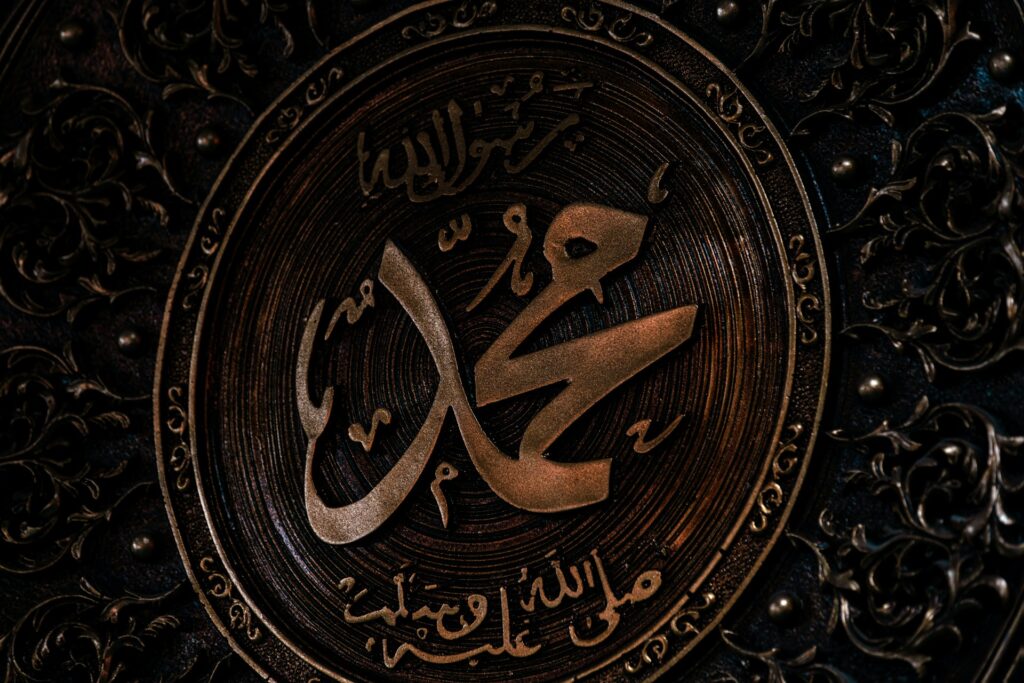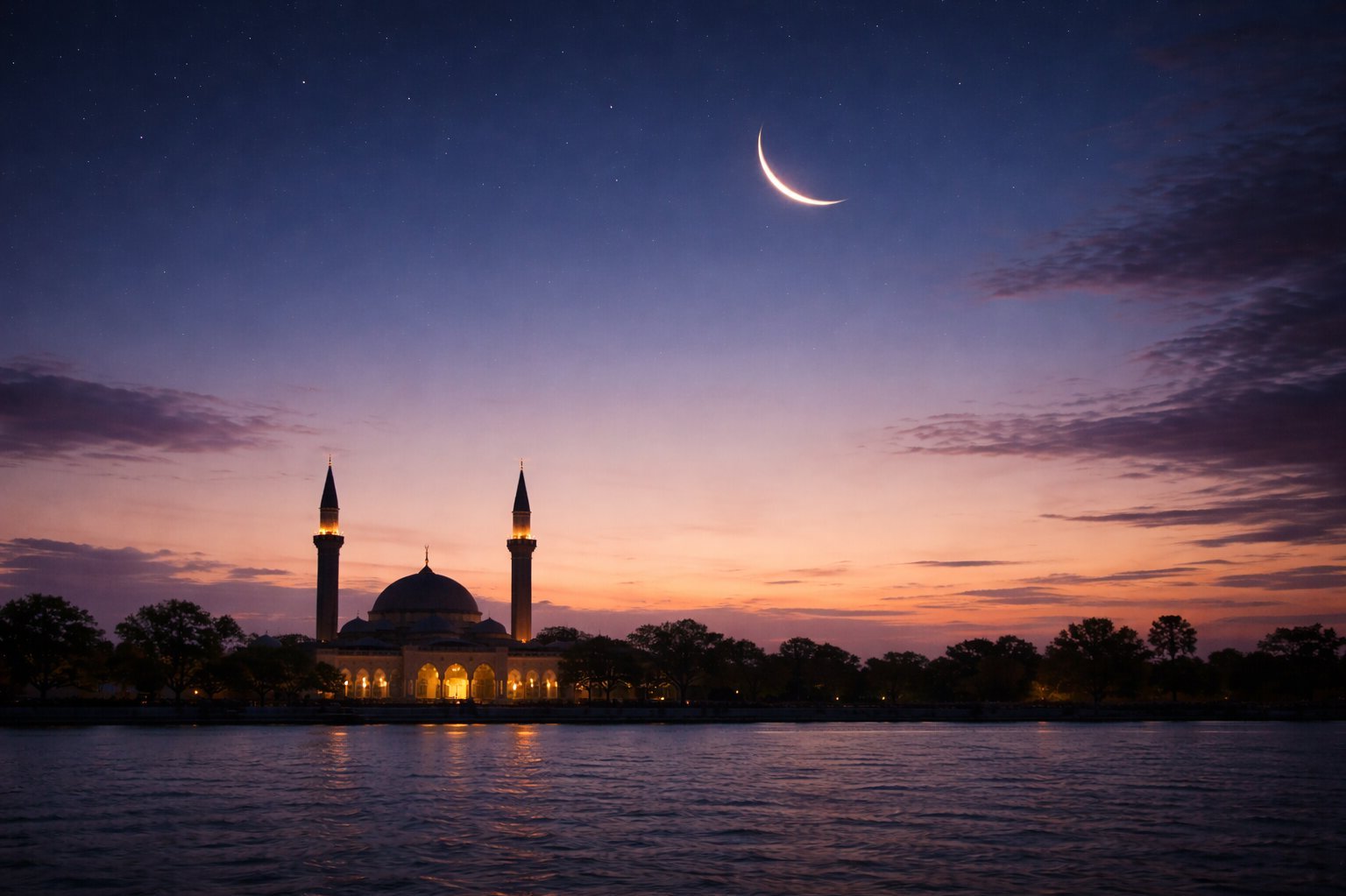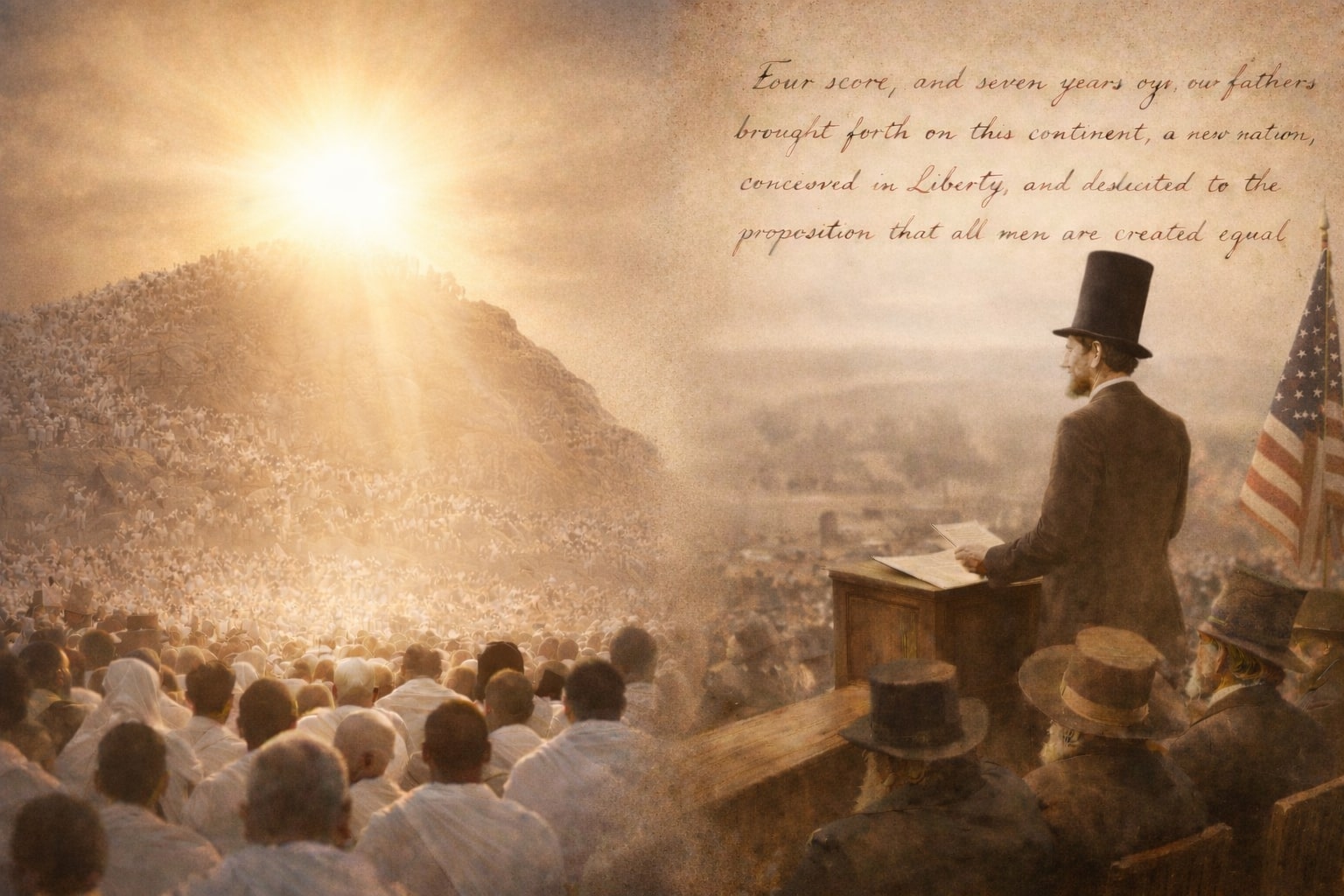Admiration is a natural human instinct. People tend to emulate those they admire, looking to role models for guidance in shaping their own values and behaviour. Too often, however, admiration is directed toward figures whose appeal is based on worldly power, wealth, or fame. In a world increasingly fractured by injustice, moral confusion, and materialism, the need for a true example worthy of emulation cannot be overstated.
It is in this respect that Allah presented the life of Prophet Muhammadsa as a perfect model for humanity. The Holy Quran declares:
“And thou dost surely possess high moral excellences.”[1]
Here, we explore ten timeless characteristics of Prophet Muhammadsa—qualities the modern world desperately needs today.
1. A man of unshakeable integrity
Integrity is the foundation of trust, yet today dishonesty permeates all aspects of society. Long before his prophethood, Prophet Muhammadsa was known among his people as Siddiq (the truthful), and Ameen (the trustworthy). His reputation for honesty in business and personal dealings earned him universal respect, even from those who opposed his message.
In a time when integrity is often sacrificed for gain, his life reminds us that credibility, trust, and lasting success rest upon truthfulness. His integrity was not situational—it was absolute.
2. Justice without favouritism
From personal dealings to global governance, many of the world’s problems today stem from the denial of justice. The Prophet Muhammadsa embodied justice at every level. The Quran commands:
“Stand firmly for justice, even if it be against yourselves or parents and relatives.”[2]
When some tried to intervene on behalf of a wealthy woman to spare her from lawful punishment, the Prophetsa declared that even if his daughter Fatimara were to commit such a crime, he would enforce the punishment on her.[3]
His message was clear: justice cannot be compromised by status, wealth, or personal ties. This principle remains a beacon for societies still struggling against corruption, favouritism, and inequality.
3. A heart that felt for others
To feel what others feel and to share in their joys and sorrows is a virtue that binds communities together. In a society increasingly marked by individualism and self-interest, empathy is often overlooked—yet it remains the foundation of human connection.
The Quran beautifully describes the Prophet Muhammadsa in these words:
“Surely, a Messenger has come unto you from among yourselves; grievous to him is that you should fall into trouble; he is ardently desirous of your welfare; and to the believers he is compassionate, merciful.”[4]
This verse captures the Prophet’s profound empathy. He felt the pain of other people as his own, cared deeply for their struggles, and was moved by their suffering. His compassion was not limited to family or followers, but extended even to strangers, the poor, and the marginalised.
4. Tolerance in diversity
Given the diversity of humanity, differences are inevitable. The true peace lies not in erasing differences but in managing them with respect. When the Prophetsa arrived in Medina, he laid down the Charter of Medina, the first of its kind in human history. It guaranteed the rights of Muslims, Jews, and other groups to live as one community with mutual obligations and protections.
This pioneering document, unmatched for centuries afterward, highlights the Prophet’s vision of pluralism. In today’s world of polarisation and sectarianism, his model of tolerance offers a practical roadmap for peaceful coexistence.
5. Respect beyond differences
Absence of respect erodes relationships and societies. Too often, respect is confined to one’s own circle, while others are dismissed or belittled. The Prophet Muhammadsa emphasised respect as a universal principle. He said: “When a respected person of a community comes to you, honour him.”[5]
Even toward people of other faiths, the Prophetsa upheld dignity. The Quran instructs Muslims not to abuse those whom other people call upon besides Allah,[6] despite the fact that it strongly questions the rationality behind the concept of any God besides the One True God. Likewise, once, when a funeral procession of a Jewish man passed by, the Prophetsa stood up. When his companions said that it was the funeral of a Jew, the Prophetsa replied, “Was he not a human soul?”[7]
Such respect, even for those who differed from him, is a timeless lesson in recognising human dignity. In today’s fractured societies, respect across differences is essential for peace and coexistence.
6. A wise leader
Wisdom was among the defining traits of the Prophetsa. He had a remarkable ability to see beyond immediate tensions, weigh matters with fairness, and find solutions that preserved dignity for all.
A vivid example of this wisdom was witnessed during the rebuilding of the Kaaba, when rival clans quarrelled over who should have the honour of placing the Black Stone. To avert bloodshed, the Prophetsa suggested that the Stone be set on a cloth, with each tribal leader holding one corner, so all would share in the task. He then lifted the Stone with his own blessed hands and placed it in its position. What could have escalated into violent conflict was transformed into unity and harmony through his foresight.
Such wisdom was not occasional but consistent, shaping his leadership throughout life, reminding us that true wisdom lies not in overpowering others, but in resolving differences with foresight, justice, and compassion.
7. A mountain of patience
Patience is a virtue essential to navigating life’s inevitable trials. The Prophet Muhammadsa was a mountain of patience. He lost his father before birth, his mother at a young age, his grandfather soon after, and later many of his own children during his lifetime. Despite such personal tragedies, he remained steadfast and composed, channelling his grief into resilience and faith.
He taught: “The real patience is at the first stroke of calamity.”[8] His life was a testament to this principle. In a world increasingly overwhelmed by stress, anxiety, and hardship, his example inspires strength, endurance, and perspective.
8. Conquering through forgiveness
Forgiveness is one of the Prophet’s most remarkable traits. Upon his victorious return to Mecca, he forgave those who had persecuted him and driven him from his home, declaring, “Go, for you are free”.[9] He forgave Hind, the woman who mutilated his beloved uncle Hamzara, and even the one responsible for the death of his daughter.[10]
Such magnanimity is almost unimaginable for ordinary people, yet it set a precedent of mercy over vengeance. In a world plagued by cycles of retaliation, his forgiveness shines as a path to reconciliation and peace.
9. Humility in greatness
Despite being the Messenger of Allah and the leader of a large and dynamic Community, the Prophetsa lived with simplicity and humility. He mended his own clothes, milked his own goats, and served his family. When companions urged him to let them stand while he sat, he discouraged it, preferring equality over grandeur.
He said: “I am only a servant. I eat as a servant eats, and I sit as a servant sits.”[11]
In a world obsessed with status and display, his humility teaches dignity without arrogance and leadership without pride.
10. A people’s person
The Prophetsa was approachable, warm, and attentive in his interactions. He sat among his companions as one of them, shared in their joys and sorrows, and listened attentively to whoever spoke. His humility and accessibility made people feel valued and loved.
Anas ibn Malik, who served him for ten years, said: “The Messenger of Allah never said a harsh word to me, nor did he ever say ‘Why did you do this?’ or ‘Why did you not do that?’”[12]
In an age of social isolation and loneliness, his example reminds us of the power of genuine connection and kindness in community life.
A timeless model for humanity
The life of Prophet Muhammadsa is not preserved as a tale of distant history, but as a living guide for every age. In an era marked by division, materialism, and moral uncertainty, his example shines all the more brightly as a source of clarity and hope.
He was a man who felt for others, respected all, upheld justice, and forgave even his worst enemies. He was approachable, trustworthy, wise, and humble. Above all, he embodied a balance of spirituality and humanity that makes him an enduring role model for every generation.
The Quran reminds us:
“Indeed, in the Messenger of Allah you have an excellent example for whoever hopes in Allah and the Last Day and remembers Allah often.”[13]
The world today stands in desperate need of leaders and role models grounded in moral excellence. In the Prophet Muhammadsa, we find not just a historical figure to admire, but a timeless standard to emulate—a model of what it truly means to live with purpose, dignity, and compassion.
END NOTES
[1] Holy Quran 68:5
[2] Holy Quran 4:136
[3] Sunan Ibn Maja, Kitab al-Hudud (Book on Legal Punishments)
[4] Holy Quran 9:128
[5] Sunan Ibn Maja, Kitab al-Adab (Book on Etiquettes)
[6] Holy Quran 6:109
[7] Sahih al-Bukhari, Kitab al-Janaiz (Book on Funerals)
[8] Sahih al-Bukhari, Kitab al-Janaiz (Book on Funerals)
[9] Sirat Ibn Hisham, v. 4, p. 55
[10] Tarikh al-Khamees, Imam Husayn Bin Muhammad Diyarbakri, v. 2, p. 103
[11] Musannaf Abd al-Razaq, Hadith no. 19554
[12] Sahih al-Bukhari, Kitab al-Adab (Book on Good Manners)
[13] Holy Quran 33:22













0 Comments